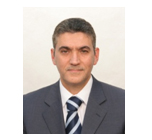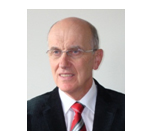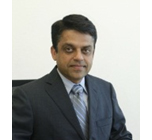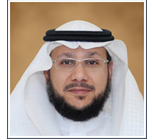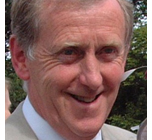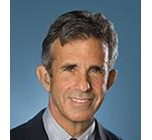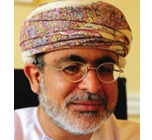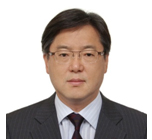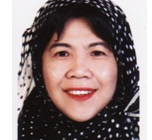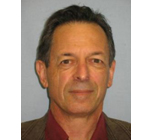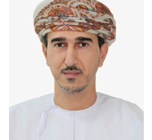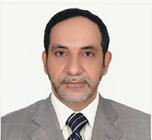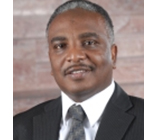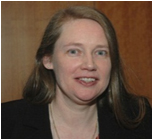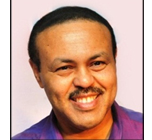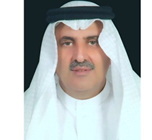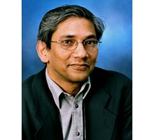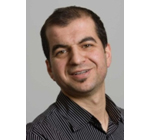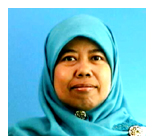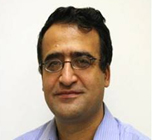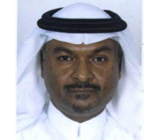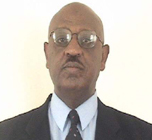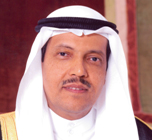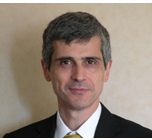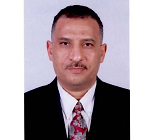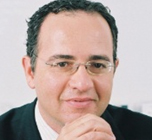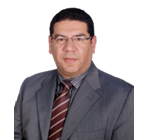|
Session 1 Tuesday, 17 January 2012 – (10:00-11:30)
Open discussion with their Excellencies Ministers of Indusry in the GCC & Yemen, and GCC Secretary General The opening session will host the Excellencies, the Ministers of Industry in the GCC & Yemen, and the GCC Secretary General. It will reflect on the country and regional experiences from the official perspectives and on a number of issues including the national efforts and aspirations to promote the transition towards the knowledge economy, the challenges faced and the future directions and models of implementation. The panelists will exchange major ideas and steps needed to move forward and encourage the transformation efforts towards Knowledge Based Economies. Session Chairman: An Announcer from Al Arabia Channel / TBA
Session 2 Tuesday, 17 January 2012 – (14:00-15:00) Prospects of Knowledge-based Industries in the GCC & Yemen This is an introductory session which will focus on the state of Knowledge Based Industries in the in the GCC and Yemen with regard to supporting institutions and policies, and the subsequent ranking of these countries on the global scale. It will also discuss the rational, objectives and challenges facing the development of KBI industries in these countries. The session will provide a comparative analysis of the current situation which will be carried within the context of global framework characterized by various models in KBI development.
Professor Abdulrazak AlFaris is currently the Chief Economic Counselor, Economic Policies & Affairs, Dubai Economic Council. Prior to that he worked as Professor of Economics, UAE University, Director of the Center for Labor Market Research and Information, TANMIA, Alternate Executive Director, International Monetary Fund (IMF), Associate Dean for Scientific Research, College of Business and Economics, UAE University, Assistant Under-Secretary for Planning, Ministry of Education, UAE, and Director of Finance, Ministry of Public Work and Housing, UAE. He obtained his Ph.D in Economics from Oxford University 1990, and worked as Assistant and the Associate Professor at the Economics Department, UAE University, and visiting scholar at MIT, Oxford University, Dundee University, and OPEC. He published 14 books including Currency Union and Exchange Rate Policy in the GCC, Fiscal Reform in the GCC, a major study on military expenditure in the Arab countries, poverty and income distribution in the Arab region, and Energy and Development in the Arab world. In addition, he published numerous articles in leading international journals. His research interests include: Macroeconomics (Fiscal and Monetary Policies), energy market, labor market and education.
Bahraini national, with nearly 20 years in various international organizations, that include 15 years in Danish and European firms, with experiences in industrial development. Mr. Dhaif has developed a strong background in planning and strategic management. As the Assistant Secretary General for Industrial Information and Studies Sector at GOIC, which started in 2004, he is responsible for Industrial Studies & information in GOIC and development of industrial strategic plans & projects for GCC member states. He managed and delivered these initiatives for the private sector and created strategic alliances with various global and regional industry leaders:§ Initiating KBI (Knowledge Based Industry) roadmap for the GCCs & National KBI road map for each country in cooperation with SRI (Stanford Research Institute).
Session 3 Tuesday, 17 January 2012 – (15:00-16:00) KBI Investment Opportunities Presentations: successful business models The main objective for this session is to present a number of successful case studies of knowledge based business that managed excel in the areas of product, process and organizational development. The session will provide an indication of the opportunities generated by such success stories and also highlight the conditions that need to be nurtured to have similar successful business stories in the region.
Dr. Al Qahtani holds a Doctorate degree in Chemical Engineering from the University of Tufts, Boston. He held several posts such as Advisor of Industrial Affairs in the Ministry of Oil and Industry, Director of Industrial Development at the Bahrain’s Economic Development Board and Assistant Professor at the University of Bahrain. Dr. Al Qahtani is specialised in the field of Economics and was a member of the Higher Education Council.
Profile summary: Martin is a Swedish national, with more than 28 years’ experience in wireless technology and telecommunication. Most of his work have been related to clients in the financial, telecommunications, information technology and logistics industries . He also worked towards defining and building successful business incubators, market strategy development, technology venture financing and IPOs.
Positions held: · Currently serving as Chief Executive of TagMaster S/B, a Malaysian subsidiary for R&D of active RFID, wireless sensor networks and Internet of Things product lines. · Free2move RFID (2005 – 2011). Chief Executive Director of Free2move’s RFID technology development subsidiary. Developed a unique RFID technology and brought it to the worldwide markets. · Mavcap & Malaysia Debt Ventures (2002-2004), Head of Research & Technology. The company is owned by Malaysian Ministry of Finance and provides debt financing to growing technology companies. · ConnecTel (2000-2001), Chief Operating Officer. · Nobel Aerotronics (1984-1988), Opto-electronics and systems designer (Sweden). · Philips Telecommunications and Systems (1988-1991), Project manager (Sweden, Holland).. · Digital Equipment Corporation (1991-1997), Project manager, systems and industry engineer · Digital Progress (1998-2000), Chief Executive, specializing in mobile phone enterprise applications and wireless telematics technology.
Other qualifications: Holds a M.Sc. in Electronics Engineering from Chalmers University of Technology, Gothenburg, Sweden combined with a Economics from Gothenburg Business School. Co-author of "Journey to Excellence in Higher Learning" (ASEAN Academic Press, 1999).
Summery of expertise: - Mechanical Engineering (Radio-Oncology) - System Engineering (Radio-Oncology) - Virtual Cooperation with international partners Professional experience: - Head of a development group in a company for spinningsystems - Founder of Schär Engineering AG in 1979 - Mechanical Engineering for Radio-Oncology, especially for Particle-Therapy - President of a virtual factory - President of a local industrial group Other experiences: - Member of the Olympic-Team 1972 - President of a local political party - Chief of civil protection - Trainer of a sports club
Dr. Anil Khurana has more than 25 years’ experience in operations, consulting, government, private equity, and academia. His main areas of expertise are operational strategy, mergers and acquisitions, global strategy and globalization, and innovation. His specific focus is in private equity, industrial, technology, and energy and infrastructure. Experience Currently a Partner at PwC UAE, where he leads the Consumer and Industrial Products & Services industry vertical for the Middle East and NorthAfrica. Prior to PwC’s acquisition of PRTM, he was the Lead Partner for PRTM Middle East and North Africa.. Before joining PRTM in 2006, he was an operating partner with the Chatterjee Group. He participated in several international M&A transactions especially in the technology, life sciences, and infrastructure sectors, From 1992 to 1999, he was professor of technology and operations at the Boston University School of Management, and at the University of Michigan Ross Business School. Prior to that, Dr. Khurana worked for 7 years with the Indian Engineering Service from where he was also deputed for World Bank leadership assignments. Other achievements He has been a National Science Foundation award winner, a Ford scholar, and a winner of several Best Article awards. He has published many journals and conferences, on themes such as innovation and growth, global operations, M&A, and privatization.. He is also a charter member of The Indus Entrepreneur, and on the board of several associations and start-ups. Anil obtained his undergraduate degrees in India in engineering and economics, and his Masters of Science, Masters of Business Administration, and PhD degrees in engineering and management from the University of Michigan, Ann Arbor, MI, USA Session 4 Tuesday, 17 January 2012 – (16:00-17:30) Foundations of KBI Knowledge-based industries (KBIs) are characterized by three dominant features: 1. advanced technological infrastructure, 2. highly developed innovation and 3. rich human capital. The session will discuss these and other success pillars and their implementation models, while highlighting the international experiences and academic research in elaborating holistic strategies towards knowledge based economies.
Academic Qualifications: PhD, Biotechnology and genetic engineering, Sheffield –UK, 3/9/1419H Master, Ms Biochemistry-hormones, King Saud University, 2/9/1415H B. Sc, Biochemistry, King Saud University, 10/11/1406H Administrative and Research Supervision 1. Supervisor of the Research Institute of Natural Resources and the Environment-(10/4/1422H), until (10/11/1431H) 2. Head of the Center for Biotechnology and Genetic Engineering-(16/1/1430 H) 3. Researcher, Centre for Research in Medicine-King Abdul Aziz City for Science and Technology 4. Chairman of the National Committee of Bio and Medical Research Ethics (18/5/1422H). 5. Chairman of the Arab Committee for Ethics of Science and Technology-(1426-1430H). 6. Deputy Chairman of the Intergovernmental Bioethics Committee (UNESCO)-(1426-1428 H) 7. Chairman of the Intergovernmental Bioethics Committee (UNESCO) (1430H) to date. 8. Vice President for Supporting Scientific Research (from 10/11/1431H.) up to date. · He has published many scientific papers in specialized and authentic scientific magazines. · Leads and participated in supervision of dissertations for higher studies. · Calendar of the scientific papers. · He has numerous studies and scientific researches. · Participated in numerous conferences and symposia and international meetings. · Member of a number of committees at the level of the Kingdom and of global commissions. · Oversaw a number of research projects in the field of biotechnology and genomes.
Bob Hodgson is the Managing Director of Zernike (UK) which manages an ICT focused incubator and provides start up capital for knowledge based firms. He has nearly thirty years of international consulting experience – he has worked in more than 50 countries including nearly 30 on innovation policies and technology commercialization half with international agencies like the World Bank and half with national, regional and local agencies and the private sector. He is regularly invited to give keynotes at international fora such as the Innovation Forum for the Americas in Uruguay; conferences on Intellectual Property strategies for SMEs for WIPO in Buenos Aires, Cairo and Rome; a workshop on technology and innovation for the World Bank in Korea. In 2009 he was co-chair of the 10th International Conference on Technology Policy and Innovation in New Delhi. In June 2010 he is one of the main presenters at the global course on Innovation Policy for the World Bank in Washington DC. Prior to the launching of Zernike (UK), Bob was for 14 years an executive director of SQW Ltd which is best known for its path breaking study "The Cambridge Phenomenon", published in 1983 and subsequently updated with an analysis of the position among high tech firms in the Cambridge region in 1999. He is a Senior Fellow at the Institute for Innovation, Creativity and Capital at the University of Texas at Austin. Prior to his time with SQW, he spent 8 years with the consultancy side of Coopers & Lybrand, working internationally from a London base.
Ph.D. in economics, Stanford University James N. Dertouzos is director of RAND Law, Business, and Regulation as well as the director of the RAND Institute for Civil Justice. During his 30-year tenure at RAND, Dertouzos has led more than 100 research projects and served in a variety of management positions, including associate head of the Economics and Statistics Department, associate corporate research manager, and resident scholar in economics. He has taught courses at Stanford, UCLA, and the University of Southern California. His research and publications cover a wide range of public policy issues, including public-sector management, the industrial organization of mass media, and military manpower. With support from the Sloan Foundation, he previously directed an ICJ project on the legal and economic consequences of the increasing labor market liability of employers. His RAND publications include Earthquake Insurance and Disaster Assistance: The Effect of Catastrophe Obligation Guarantees on Federal Disaster-Assistance Expenditures in California (Tom LaTourrette et al., 2010); The Cost-Effectiveness of Military Advertising (2009); Performance Evaluation and Army Recruiting (James N. Dertouzos and Steven Garber, 2008); and The Legal and Economic Implications of Electronic Discovery: Options for Future Research (James N. Dertouzos et al., 2008). Research Focus Law and economics; economics of mass media regulation; labor economics; manpower; welfare reform; applied microeconomics; industrial organization Recent Projects
· Value of television programming.
Dr Desirée van Welsum is a consultant with the RAND Corporation. She has extensive experience of policy-oriented analytical, econometric and statistical work, having previously worked at RAND Europe, the United Nations Conference for Trade and Development (UNCTAD), the International Telecommunication Union (ITU), the Organisation for Economic Cooperation and Development (OECD) and the UK National Institute of Economic and Social Research (NIESR). She has undertaken applied quantitative and policy-oriented work on a broad range of ICT-related issues, as well as on topics related to entrepreneurship, highly skilled workers, intellectual assets, innovation, international trade, Foreign Direct Investment, and economic development, and has published widely in these areas. Dr van Welsum holds a Ph.D. in economics from Birkbeck College, University of London, and MScs in economics and international economics from the University of Nottingham and Université Paris IX Dauphine.
I. Summary of Experience September 2011 – Present: STI Policy Advisor. Duties include helping a diverse group of public and private clients formulate and implement a broad range of Knowledge Economy and STI capacity building policies and programs. February 2005 – August 2011: World Bank Science and Technology Program Coordinator. Duties included organizing two Global Forums (February 2007 and December 2009) on STI Capacity Building for Sustainable Development; managing the World Bank’s STI Global Expert Team; assisting in the design, preparation and implementation of various World Bank STI projects; representing the World Bank as a speaker at, and participant in, international STI capacity building conferences; maintaining the World Bank’s STI dialogue with G-8 governments, bilateral donors, and various multilateral and UN agencies; and managing World Bank STI capacity building programs in Rwanda and Ghana and helping to initiate STI capacity building programs in Tanzania and The Gambia. February 1988 – January 2004: World Bank, various positions. STI duties included organizing a High Level Expert Seminar in Moscow, Russia that was co-chaired by the Prime Minister of Russia and the President of the World Bank; managing inter-disciplinary teams preparing, designing and supervising World Bank STI projects and sector reports in Russia, Ukraine, Latvia, and Kazakhstan; and leading the World Bank team that prepared the Russia-Ukraine Sea Launch project (the World Bank’s only commercial space launch project). December 1982 to December 1987: US Congress, various positions September 1975 to August 1982: Assistant Professor, University of Texas at Austin II.Education PhD (Economics) New School For Social Research, 1978. Session 5 Wednesday, 18 January 2012 – (09:00-10:30) KBI International Experience This session will go through three international experiences and one from the Gulf on the national initiatives and efforts to develop and steer the countries towards knowledge based economies. It will discuss the strategies and plans, both at national and local levels, and the implementation processes, and challenges faced. It will also discuss how these experiences could be relevant to the case of the countries of the region. The session will cover the experiences of Korea, South Africa, Oman and Malaysia.
Dr. Al-Hinai is the Secretary General of the recently established Research Council. He was the Director of the Water Research Center and an Associate Professor in the Department of Mechanical and Industrail Engineering at Sultan Qaboos University. He obtained his B.Eng. in Manufacturing Systems Engineering from Bradford University in 1986 and joined Sultan Qaboos University as a Maintenance Engineer. He obtained his M.Sc. (1988) and Ph.D. (1992) from the Applied Energy Department at Cranfield Institute of Technology in the UK. Beside his teaching duty, he was appointed as an Academic Assistant for Innovation and Industrial Links at SQU. Dr. Al-Hinai’s research interests are in Solar Energy and Water Desalination with emphasis on solar water desalination and on Solar Cooling Techniques for Buildings in Hot Climates.
Major Field Economic Development/Industrial Adjustment Education Ph.D.,Economics, Northern Illinois University, U.S.A. (1966) Career · 1986. ~ 1991. Researcher and Research Associate, Department of Industrial Policy and Industrial Structure and Technology Team, KIET · 1991. ~ 1996. Research Assistant, Department of Economics, Northern Illinois University, and Teaching Assistant · 1996. ~ 1998. Research Associate, Industrial Structure and Technology Team, KIET · 1998. ~ 1999. Associate Research Fellow, Center for Knowledge-based Industry Studies, KIET · 1999. ~ 2002. Research Fellow, Industrial Policy Division, KIET · 2003. ~ Present Director, Leading Industries Division, KIET Publications · Dynamics in Industrial Development and the Role of Innovation: An Industrial Perspective, KIET Research Report, 2003 (Co-author, in Korean) · Korea`s New Economic Strategy in the Globalization Era, 2003 (Co-author, Edited by O.Yol Kwon, Sung-Hee Jwa and Kyung-Tae Lee, Edward Elgar Publishing Limited) · Innovative Capacity and Industrial Development, KIET Research Report No. 447, 2001 (Co-author, in Korean) · Knowledge-Based Economy: Theory and Practice, KIET Research Report for the 21st Century 99-19, 2000 (Co-author, in Korean) · Building the Creative Knowledge-Based Nations: Its Implications for Government, Companies and Individuals, KIET Research Report for the 21st Century 99-02, 1999 (Co-author, in Korean) · Deindustrialization in Korea and Its Policy Implications, The Korea Economic Research Center/ The Korea Chamber of Commerce & Industry Research Report No. 98-85, 1998 (in Korean) The Korean Economy in the 21st Century: A Vision for the Korean Future Industries, The Presidential Commission on Policy Planning (PCPP) Research Report No.12, PCPP, 1998 (Co-author, in Korean)
Dr Norsaidatul has over 30 years of working experience in setting national policies for the Government of Malaysia in setting world class systems and standards, human resource development, incentives and financial investments for the Knowledge Base Industries, popularly known as the Multimedia Super Corridor. Her strength is implementing the strategic vision of the Knowledge Based Industries programs in raising quality standards and world class infrastructure for service centers and Government Link Corporations, that includes benchmarking the development for world class human talent, systems and office management in driving the national flagship of innovation and information based projects. Under these initiatives her involvement has been in setting up national incentives to drive investment, the national pool of knowledge workers, setting incubators nationwide, creation of new entrepreneurs and nurturing the business new start-ups including funding and business development. Her career path starts from Ministry of Finance into Prime Minister’s Department (Multimedia Development Corporation) where she was the Senior Manager of Strategy Department, Head/GM of National Incubator Network, Vice President of Malaysia Debt Ventures Berhad and now as the Managing Director of ThinkPlus Consulting Pte Ltd. Dr Norsaidatul has a PhD from the University of Hull, U.K. on “Corporate Management Styles of Malaysia Companies in Managing their Subsidiaries”, an MBA from University of Evansville, Indiana, USA and obtained her Bachelor of Sc (Hons) degree Mathematics from the University of Malaya, Malaysia. Dr Norsaidatul is a certified trainer from BABSON COLLEGE SCHOOL OF ENTREPRENEURS, BOSTON, USA (No. 1 for 15 years) on entrepreneurship development and education. She is also an Adjunct Associate Professor of University Tun Abdul Razak (UNIRAZAK), specializing in human resource strategy, consulting and strategic management, where she lectures and facilitates workshops on business policy, strategy and international business.
Michael Kahn is an independent analyst working on science, education and innovation policy, and the development of strategy, plans, measurement, monitoring and evaluation in these fields He now works as an independent consultant to Government and multilateral organizations, is Professor Extraordinaire at Tshwane University of Technology, and Honorary Research Fellow of the University of Stellenbosch. In 2002 he founded the Centre for Science, Technology and Innovation Indicators (CeSTII) at the Human Sciences Research Council and was responsible for developing South Africa’s official R&D and Innovation surveys. His earlier contributions to education development in South Africa includes the SYSTEM recovery initiative, the Dinaledi Schools Project, and the ICT in Education strategy of the Department of Education. Regarding innovation policy he contributed to the Green and White Papers on Science and Technology, led the development of the National Research and Technology Foresight study, and authored the Foresight Synthesis Report. Other policy contributions include the Performance Measurement System for the Science Councils, and a study on mobility published as Flight of the Flamingoes. He has been advisor to the Minister of Education, and Ministers of Science and Technology, a Chief Director in the Gauteng Provincial Government, education professor in Botswana and South Africa, and an Executive Director of the Human Sciences Research Council. His most recent assignments include projects for the World Bank, UNESCO, the Inter-American Development Bank, the International Social Science Council, the International Gas Union, and European Science Foundation. He works closely with OECD, UNESCO and the UNESCO Institute for Statistics, as well as the African Union/ NEPAD S&T initiatives, and is currently serving on the Ministerial Review of the South African Science System. He holds PhD, MA and Diploma of Membership of Imperial College, of the University of London and BSc(Hons) of the University of Cape Town. He is a member of the Academy of Sciences of South Africa, serves on the board of the Agriculture Research Council, is a member of the Ministerial Review of the Science System, and on the Advisory Board of the journal Research Policy.
Mohamed El-Maskari received a Bachelor's degree in science from Sultan Qaboos University, Sultanate of Oman in1996 and obtained MBA from the University of Bedfordshire, United Kingdom, in 2008. Since 2005 Mr. Mohamed El-Maskari hold the post of the General Manager of Knowledge OASIS Muscat, namely an investment economic zone for information and communication technologies in the Sultanate of Oman, found to provide a proper environment and investment advantages to attract companies in the field of knowledge-based economy. Mohammed El-Maskari attended many training courses and acquired various expertises in number of fields such as: - Building leadership skills and management development; Development of national policies on information; Development of entrepreneurs; Integration of the commercial services for the industrial areas. In addition to his current post, Mr Mohammed El-Maskari holds membership of boards of director of many public establishments and companies. Session 6 Wednesday, 18 January 2012 – (10:45-12:00) Applications of Advanced Technologies – Industrial Biotechnology Applications This session will focus on the industrial applications of the advanced technologies, particularly industrial biotechnology. Biotechnology is proving its worth as domain that can contribute to sustainable industrial development. Biotechnology enables the development of new products whose properties, cost and environmental performance could not be achieved using conventional chemical processes or petroleum as a feedstock. The session aims to highlight the prospects for the Gulf Region to advance in specific areas of the biotechnology (such as chemicals, plastics, water desalination, food processing, mining, metal refining, pharmaceutical and medical fields,) as well as to shed the light on successful experiences of other nations in this field.
Dr. Yahya Y. Almutawakel. has been entrusted with several high level Government posts over the last ten years, the last of which was Minister of Industry & Trade (April 2007 - January 2011), and Vice Minister of Planning and International Cooperation (August 2005 - April 2007. He was advisor to the Ministry of Planning and International Cooperation from 2002 to 2005, and before that advisor to the Minister of Industry and Trade, from 1999 to 2002. He also held the positions of Senior Poverty Expert and Head of the Poverty Follow-Up and Monitoring Unit. He was a Senior Planning Expert for the National Development Plan and the Poverty Reduction Strategy. Dr. Almutawakel has worked as a consultant for many donor agencies in Yemen, and contributed to producing major documents and policy frameworks on behalf of those agencies. He has also undertaken various field and sectoral research work. He has published many articles on economic policy issues in local and regional academic journals. He also served as the Editor of the three National Human Development Reports that were produced since 1998. Dr. Almutawakel participated in many important events and conferences in the Middle East, Europe, Asia and the U.S.A. and presented working papers on various development issues, particularly on economic reforms and human development. He has been engaged, over the last years, in Yemen's negotiations with the Gulf Cooperation Council, with a view to qualify Yemen, for GCC membership; in addition to leading Yemen’s accession to the WTO. Dr. Almutawakel is a professor of Economics at Sana’a University, the leading university in Yemen. He is a holder of a Ph.D. degree in Economics from the University of East Anglia in Norwich (England). His specialization was in Industrial Economics and International Trade. He earned an M.A. in Development Economics from the University of Maryland – College Park (U.S.A.); and a B.A. in Economics and Political Science from Sana'a University (Yemen).
Dr. Nimir O. Elbashir is faculty member at the Chemical
Engineering Program of Texas A&M University at Qatar. Dr.
Elbashir has over fifteen years of research and teaching
experience. His research activities are mainly focused on design
of advanced reactors & catalysis for the Gas-to-Liquid
technology, petrochemical industry and environmental processes.
He held several industry positions in research and development
(R&D) departments in addition to several academic positions
before joining TAMUQ. Dr. Elbashir holds several US and European
patents and has published numerous scientific contributions in
form of journal articles, conference proceedings, presentations
and industry seminars and technical reports. Dr. Elbashir
completed research studies on design of reactor technology and
applied catalysis for several world-leading chemical and
petrochemical companies (e.g. BASF Corporation, SABIC R&T, and
Nippon Oil Corporation). Currently he is leading research teams
funded by 4 million US dollars. His current activities are
focused on the field of Gas and Biomass-to-Liquid Technology
collaborating with world class scientists from academia (Texas
A&M University, University of Cambridge, University of
Sheffield, Auburn University, and DLR (Germany Aerospace
Institution)) and industry (Shell and Rolls Royce). The
scholarly of Dr. Elbashir research activities has been
recognized by the Gordon Research Conference, BASF Corporation,
and the American Institute of Chemical Engineers (AIChE). Dr.
Elbashir graduated with BSc First Class Honors in Chemical
Engineering from the University of Khartoum (Dec. 1994); MEng
from UTM (Malaysia) (Jan. 1998) and PhD degree from Auburn
University (Dec. 2004).
Dr. Abigail Barrow is the Founding Director of the Massachusetts Technology Transfer Center (MTTC). She is responsible for the overall management of the MTTC and the development of its programs. The goal of the MTTC is to support technology transfer activities from public and private research institutions to companies in Massachusetts through a variety of programs that assist faculty, researchers, and students who have commercially promising inventions. Prior to joining the MTTC, Dr. Barrow served as managing director of William J. von Liebig Center at the University of California San Diego (UCSD). The von Liebig Center was created in 2001 to support the commercialization of research being performed in the UCSD Jacobs School of Engineering. Dr. Barrow worked in a variety of roles at UCSD CONNECT from 1990 to 2001. At CONNECT, she developed and expanded many of its programs to support early-stage company formation and technology commercialization. The CONNECT program is internationally recognized and has been successfully replicated in many other regions around the world. Dr. Barrow is on the board of the National Collegiate Inventors and Innovators Alliance (NCIIA) and on the scientific advisory board of Norway's Simula Research Laboratory. She has also served as UCSD’s Principal Investigator and as a member of the board of directors for the Center for the Commercialization of Advanced Technologies Consortium (CCAT), which assisted in the identification and commercialization of technologies in the area of crisis and consequence management and received more than $25 million in federal funding primarily from the Office of Naval Research. Dr. Barrow received her Ph.D. from the Science Studies Unit and a B.Sc. in Mechanical Engineering from the University of Edinburgh.
Moiz Bakhiet is the Chief Executive Director (Founder) of Princess Al-Jawhara Center for Molecular Medicine, Genetics and Inherited Diseases. He is a Professor and Chairman of the Department of Molecular Medicine, College of Medicine and Medical Sciences, Arabian Gulf University and is a Senior Consultant / Physician Neurologist at the Bahrain Royal Medical Services, Kingdom of Bahrain. Professor Bakhiet received his M.B.B.S. in 1985 from the Faculty of Medicine, University of Khartoum and his Ph.D. in Medical Sciences in 1993 from Karolinska Institutet, Stockholm, Sweden. He also obtained a Clinical Specialty in Neurology in 1993 from the Swedish Board of Health and Welfare.
He published more than 100 papers in high rated scientific journals as Cell, Nature, J Exp. Med., J Immunol., etc., published more than 40 abstracts and had several International Patents.
Session 7 Wednesday, 18 January 2012 – (12:00-13:00) Applications of Advanced Technologies - Energy Sector and Petrochemicals Processes
Volatile oil prices, growing energy demand and climate change issues are shaping the global energy agenda today. Against this background, energy security and the need for environmental protection have assumed special significance in the context of the Millennium Development Goals. Despite having the largest reserves of conventional fossil fuels resources, Gulf countries have initiated ambitious plans to develop renewable resources as well as biotechnology processes. The focus of this session is to highlight the potential industrial application of the advanced technologies, i.e. ICT, nanotechnology and biotechnology to improve the production efficiency and utilization of energy and petrochemicals.
Dr. Abdulwahab Al-Sadoun was appointed as the Secretary General of GPCA effective April 2009. Dr. Al-Sadoun brings about 20 years of experience the industrial field in various positions across the government and private sectors. Dr. Al-Sadoun earned his PhD in industrial chemistry from the University of London in 1990, following which he joined Saudi Basic Industries Corporation (SABIC) as a Senior Researcher at the corporate R&D Center in Riyadh, Saudi Arabia. After spending about five years at SABIC, he joined the Qatar-based Gulf Organization for Industrial Consulting (GOIC) in January 1996 as a Petrochemical Expert in the Industrial Projects Department. In July 1997, he was appointed Director of the Industrial Information & Coordination Department at GOIC. In November 2001, Dr. Al-Sadoun moved to Riyadh to be a Vice President at Al-Sharq Plastic Industries Co. In December 2004 he joined the Saudi Arabian General Investment Authority (SAGIA) as the Director-General of the Energy Sector till January 2008. He then co-founded PetroBaas, a project development company with focus on downstream petrochemical and allied industries and acted as its President till February 2009. Dr. Al-Sadoun is a graduate of the General Management Program (GMP3, 2007), Harvard Business School, Harvard University. He holds two U.S. patents and has published over 25 articles in refereed regional and international periodicals.
Rafiqul Gani is professor of systems design at the Department of Chemical & Biochemical Engineering, The Technical University of Denmark and the head of the Computer Aided Process Engineering Center (CAPEC). His current research interests include development of computer aided methods and tools for modelling, property estimation, process-product synthesis & design, and process-tools integration. He has more than 150 reviewed publications and delivered over 200 lectures, seminars and plenary/keynote lectures at international conferences, institutions and companies all over the world. Professor Gani is editor-in-chief of Computers and Chemical Engineering journal, the series editor for the Elsevier CACE book series and serves in the editorial advisory board of the journal for Chemical Engineering Patents, Journal of Process Systems Engineering and Chemical Engineering Research Letters. Professor Gani is a member of the executive board of the EFCE, the scientific vice president (elect) of the EFCE, a member of the Board of Trustees of the AIChE and also of CAChE Corp., a Fellow of the AIChE and also a Fellow of IChemE. For more details visit http://www.capec.kt.dtu.dk/People/Rafiqul-Gani-Director/
Gürkan Sin, BSc, MSc,PhD Gürkan Sin is associate professor within Process Systems Engineering (PSE) area at Computer-Aided Process Engineering Center (CAPEC) at the Department of Chemical and Biochemical Engineering at Technical University of Denmark (DTU). Dr. Gürkan Sin has a broad expertise in development and application of systems engineering approaches for solving a wide range of problems within an interdisciplinary framework that uses modelling, numerical analysis, optimization, systems and control theory, computer science, and management science. While the research is methodology focused, the applications extend to a wide range of areas including chemicals, food, pharmaceutical, biotechnology, water industry and biochemical industries. The ultimate aim of the research is to develop model based enabling technology to support first-time right, novel and sustainable future product-process development. At the same time the research contribute to the understanding, management and optimization of complex engineering process and systems to achieve energy efficient, intelligent, socially responsible and sustainable chemical and biochemical industries. To this end, research is performed looking at Process Systems Engineering, Computer-aided process engineering; Process synthesis and design; Process retrofitting and optimization; Sustainability; Risk assessment and safety among others. Dr. Gürkan Sin has authored 50+ publications in ISI indexed journals as well as 100+ various scientific contributions (conference proceedings, abstracts, monograph, book chapters,..) and contributed to various books and co-authored together with Prof. Rafiqul Gani and Assoc.prof. Krist Gernaey the Ullman’s Encylopedia of Process Systems Engineering.
Professor Dr. Noorhana Yahya is a Professor of Physics at the
Universiti Teknologi PETRONAS (UTP) of Malaysia. Professor
Noorhana obtained her first degree B.Sc. (Hons) from Universiti
Pertanian Malaysia in 1996 and subsequently a PhD from the
Universiti Putra Malaysia in 2001. Since April 2011 she is
holding the Dean position of the Faculty of Science and
Information Technology. Professor Noorhana chaired many national
and international conferences and workshops, including the
"International Conference on Diffusion in Solids and Liquids" in
a Carbon and Oxide Nanostructures session in Paris 2010 and in
Algarve-Portugal 2011. She was also the organizer and chair of
Nanomaterials session at the Advanced Computational and
Experimental Conference 2011 which was held in Portugal 2011.
Currently Professor Yahya is the Vice President of the
International Society of Nanoscience (ISN) and the Life Member
of Malaysia Solid States and Technology Association. She is also
the member of Malaysian Institute of Physics. She has published
more than 120 journal papers and had participated in more than
50 scientific conferences locally and internationally. Since
2002 she has been awarded 24 International and Local Invention
and Research awards. Among the most outstanding award is the
Best Russian Award (2010) and Gold Medal from Innova-Eureka
which received Special Mention from the Belgium Government. She
is the inventor of more than 10 patents and one of the most
promising patents (for commercialization) is called NCZ method
on ONE-STEP urea synthesis method employing nitrogen gas and
synthesis gas as the feedstock which is conducted in a high
density magnetic flux with new catalyst support system. She has
also spearheaded research on Electromagnetics (EM) at the
Universiti Teknologi PETRONAS and was awarded with PETRONAS
Research Fund to develop an EM Transmitter for Shallow Water
Environment. This technology exploits the idea of focusing EM
waves to deep target and able to decompose TE and TM modes. As a
leading and profound physicist in the country, Professor Yahya
has established strong collaboration with University of
Cambridge, UK and Wright State University, US and other
international industrial partners in the oil and gas industry.
Expertise: Fermentation/Bioprocessing Engineering Professional experience: Assistant Professor, Department of Food Engineering, University of Gaziantep, Turkey. 1992- 1994. Assistant Scientist, Department of Food Science and Human Nutrition, Iowa State University, Ames, Iowa, USA. 1994-1999. Assistant Professor, Department of Agricultural and Biological Engineering, The Pennsylvania State University, University Park, Pennsylvania , USA. 1999-2005. Associate Professor, Department of Agricultural and Biological Engineering, The Pennsylvania State University, University Park, Pennsylvania , USA. 2005-2009. Professor, Department of Agricultural and Biological Engineering, The Pennsylvania State University, University Park, Pennsylvania, USA. 2009-Present. Education: B.S., Food Engineering. 1987. Middle East Technical University, Gaziantep, Turkey. Ph.D., Food Science and Technology with minor in Chemical Engineering. 1992. Iowa State University, Ames, Iowa, USA.
Session 8 (in parallel with Session 7) Wednesday, 18 January 2012 – (12:00-13:00) Applications of Manufacturing of Advanced Technologies – Advanced Materials This session will address the industrial applications of nanotechnology, in particular the use of carbon nanotubes in electronics. Other possible applications that include the usages in energy, medicine, water desalination & cleaning and food processing, will also be highlighted. The session will aim to provide an assessment of the potential of Gulf region for investment in nano-technologies and discuss the markets, tools and infra-structure, workforce training and education and finally research and development activities.
Dr. Mariam is currently the head of the Materials Technology
Unit and a member of the research committee at Qatar
University. She had her PhD in 2001 in Materials Science, and
worked as Assistant and Associate Professor at Qatar
University. She has many scientific projects funded by Qatari
and International agencies, and she had many industrial and
educational consultations for the petrochemical industry in the
region as well as the Environmental council and GCC metrology
and standardization bodies. Dr. Mariam has more than 40
published papers in international journals and conferences in
the area of the Polymers and composites characterization,
properties and effect on the environment. She participated and
chaired many International industrial and educational
conferences in the region.
Mohammed Binhussain is a Research Professor in Civil Engineering with 28 years of experience in engineering, management and research. He is involved in research and technology development in building materials and management, and published over 60 papers and reports. He has, jointly with others, filed 6 patents, nationally and internationally. His research interest is focused on Concrete, Ceramics, Glass-ceramics, Composite and Nano materials. He finished his Ph.D., in Civil Engineering from University of Leeds, UK, in April 1990 and the MSc in Sept 1986. He obtained his BSc from King Abdulaziz University, Jeddah, KSA in Oct 1982 and joined KACST then. He is currently the director of The National Program of Advanced Materials and Building Systems at KACST, since Sept 2008. He was the Secretary General of the Saudi Building Code National Committee (Feb 2003- June 2007). He served as deputy or director for different directorates and research Institute at KACST since 1990. He is a member and chairman of several KACST and national Committees. His current research activities are Nano Carbon Tubes, Geo-polymer, sintered glass and porous ceramics materials developments.
Professor of Engineering Science and Mechanics and the Associate Director of the Center for Nanotechnology Education and Utilization and the Nanotechnology Applications and Career Knowledge Center at the Pennsylvania State University Dr. Awadelkarim received his B. S. in Physics from the University of Khartoum, Sudan, and his Ph. D. from the J. J. Thompson Physical Laboratory at Reading University, U. K. Prior to joining Penn State, Dr. Awadelkarim worked as a Senior Research Scientist at Linkoping University and the Swedish Defense Research Establishment. His research interests are in nanotechnology, nanoelectronics, nanoelectromechanical systems (NEMS), and related nanomaterials. Dr. Awadelkarim has authored/coauthored over 200 articles in journals, books, chapters in books, and conference proceedings. In 2006 Dr. Awadelkarim was selected by the U. S. National Academy of Sciences as a Jefferson Science Fellow, and he is currently a Consultant and Senior Science Advisor at the United States Department of State. Dr Awadelkarim’s service to industry and the U. S. governmental departments and agencies included : membership of the Electronic Power Research Institute (EPRI)/Defense Advanced Research Projects Agency (DARPA) sponsored “Industry-University Team for Flat Panel Display Technologies” ; membership of “DARPA Technical Team on High Definition Systems” ; membership of “SEMATECH’s Gate Stack Engineering Working Group” ; representation of the U. S. Department of State in the “Sub-committee in Nanoscale Science, Engineering and Technology (NSET)”; and several participations in the U. S. Government Interagency meetings for Science and Technology agreements with countries in Africa and the Middle East. Dr Awadelkarim is a Member of the Board of Directors for the Arab Science and Technology Foundation and a Fellow of the African Scientific Institute.
Dr Alan Smith is the Managing Director of AZ-TECH consultancy company. His career began in academia as a lecturer before he moved into industry. He was a member of the UK Government’s Foresight Panels for both Chemistry and Materials, and has served on industrial advisory boards for universities. He is a past President of the Industrial Affairs Division of the Royal Society of Chemistry, and was a member of the Bureau of IUPAC (International Union of Pure and Applied Chemistry). He manages a number of projects for the UK Government and was an Associate Director of the Micro Nanotechnology Network, a Government initiative on nanotechnology. He is the author of numerous papers on nanotechnology, and he lectures on the subject to schoolchildren, the general public, international experts, and Commonwealth Heads of State. He also provides presentations on nanotechnology for different industry sectors, for both individual companies and industry associations. He has been active in setting up nanotechnology initiatives for several governments: UK, EU, South Africa, Argentina, Zimbabwe, and Malaysia. He has facilitated over 50 technology roadmaps in a variety of sectors, many for UK Government sponsored organizations, as well as for the European Union and the Government of the Republic of South Africa.
Session 9 Wednesday, 18 January 2012 – (15:00-16:30) KBI Fiancing This session will review some of the financing issues facing the KBI industries and present cases from the GCC and other countries designed to deal with the anticipated challenges. The speakers will explain how venture capital has been utilized to help the transfer of knowledge and the steps taken to help aspiring entrepreneurs obtain the financial, marketing, management and business assistance that they might need to improve their chances of success. They will also explain the role of both public and private sectors in facilitating financing of KBIs. The session will address a number of interconnected topics, including: a) institutions and instruments to financing KBI industries, b) the international experience in promoting KBIs, c)justifications and models of regional initiatives to promote KBIs and d) public policies to support financing KBIs
José Palacín, is currently the Chief of the Innovative Policies Development section at the Economic Cooperation and Integration Division of the United Nations Economic Commission for Europe (UNECE) in Geneva, where he previously worked at the Economic Analysis Division. Dr. Palacín is the secretary of the UNECE Team of Specialists on Innovation and Competitiveness Policies, an intergovernmental group of experts on this field nominated by UNECE member States. His work at the UNECE also the particular problems of innovative enterprises in raising finance and the role of the public sector in helping them to overcome these challenges. On this capacity, Dr. Palacín has authored and contributed to various UN publications and documents on the area of financing and innovation. Previously to joining the UN in September 2004, he was a Senior Economist at the Daiwa Research Institute (Daiwa Securities SMBC) in London for seven years, where he was responsible for a number of emerging markets in Europe, Middle East and Africa, providing economic analysis and strategic advice to the equity, corporate finance and debt origination divisions. He has lectured at the University of Wolverhampton and the Autonomous University of Barcelona and provided consultancy services on economic and financial issues on transition economies for various public and private organizations. Dr. Palacín has a Ph D and in Russian and East European Studies (Economics, University of Birmingham, UK) and degrees in Economics and Law (Autonomous University of Barcelona, Spain).
- Has MA, Ph.D. in Economics (Economic Development, Econometrics, Energy & Natural resources Economics) - has more than 25 years of research experience - Worked as Senior Research Director at Canadian Energy Research Institute - Worked as Economic Advisor at Industrial Bank of Kuwait - Worked as Economic Expert at Arab Planning Institute - Worked as Research Scientist at Kuwait Institute for Scientific Research - Has more than 35 published research papers in international refereed journals.
Imad Ghandour is the Founder & Managing Director of CedarBridge, where he focuses on investments in MENA region in high growth companies. Before founding CedarBridge, Imad was an Executive Director Private Equity in Gulf Capital for more than five years and the Head of Strategy & Research Department. He invested successfully more than $220 million throughout the MENA region. Prior to joining Gulf Capital, Imad was a consultant for 12 years working with several regional and international organizations on investment and market research assignments. Imad is a director in the board of Kids Foundation, a nurseries operator in UAE, Advanced Laboratory Services, a leading provider of laboratory services in Middle East, and Triumpharma, a leading CRO provider in Jordan. Previously, he lead the investments in Maarif Education, the largest educational group in Saudi Arabia, Metito, the largest water engineering company in the region, and TechnoScan, a leading healthcare provider in Middle East. Imad is also a founding Member of the MENA Private Equity Association, and co-authors the annual MENA PEA report on the state of PE and VC in the Middle East. Imad holds a BS from American University in Beirut, and an MBA from University of Wisconsin.
Mr. Ibrahim Shoukry is the head of Direct Investment & Financing Department at the Islamic Corporation for the Development of the Private Sector (ICD), a subsidiary of the Islamic Development Bank. He is in charge or of all nonfinancial operations with focus on industrial projects and covering both debt and equity financing.
Prior to joining the Islamic Development Bank Group he worked at KPMG Egypt as a senior manager in the consulting division where he was in charge of the financial advisory services and conducted several feasibility and valuation studies for blue-chips in different sectors
|




